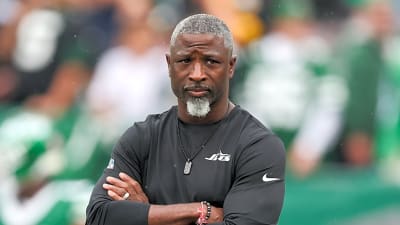
The tennis world is a little dimmer this week with the news that Nikola Pilic, a Croatian legend and the man Novak Djokovic called his “tennis father,” has passed away at the age of 86. Pilic died on Monday in Opatija, a coastal town in his native Croatia, leaving behind a legacy that’s frankly hard to overstate. For many, he was the behind-the-scenes force who not only shaped champions but also stood up for players’ rights in a way that permanently changed the sport.
Who Exactly Was Nikola Pilic?
For those who only follow the current titans of tennis, the name Nikola Pilic might not ring an immediate bell. But trust me, this guy was a big deal. Before he was molding future world No. 1s, Pilic was a formidable player in his own right. Born in Split in 1939, he picked up a racket and quickly dominated, eventually racking up nine singles titles and six doubles titles during his professional career.
His peak as a player came in 1973 when he reached the final of the French Open. While he lost to Ilie Năstase, making it to a Grand Slam final is no small feat. He also snagged a US Open doubles title in 1970. Pilic was part of the original “Handsome Eight,” a group of players who signed on with the World Championship Tennis tour in 1968, essentially ushering in the professional era of the sport. So yeah, he was kind of a trailblazer.
The Man Who Caused a Wimbledon Boycott
Here’s where the story gets really juicy. In 1973, Pilic was suspended by the Yugoslav tennis federation for supposedly skipping a Davis Cup tie. The International Lawn Tennis Federation upheld the ban, meaning he was barred from playing at Wimbledon. Instead of just shrugging and accepting it, 81 of his fellow players, including the newly formed Association of Tennis Professionals (ATP), decided to boycott Wimbledon in protest.
Can you imagine that happening today? It was a massive statement. The players rallied behind one of their own, flexing their collective muscle for the first time. The event became a defining moment for players’ rights and cemented the ATP’s role as a powerhouse in the sport. Pilic wasn’t just a player; he became a symbol of solidarity.
The Coach Behind the GOAT, Djokovic
After hanging up his racket in 1978, Pilic transitioned into what would become his most influential role: coaching. He wasn’t just any coach; he was a kingmaker. He captained three different nations—Germany, Croatia, and Serbia—to Davis Cup glory, a feat no one else has ever managed. He also opened a tennis academy near Munich, which became a breeding ground for future stars like Boris Becker, Michael Stich, Goran Ivanisevic, and, most notably, a young Novak Djokovic.
In 1999, a 12-year-old Djokovic was sent to Pilic’s academy. At the time, Serbia was being bombed, and Djokovic’s first coach knew he needed a safe place to develop his prodigious talent. Pilic and his wife, Mija, took the young Serb under their wing. Djokovic would later say they “treated me like their own child.” He spent four crucial years there, and the foundation for his record-breaking 24 Grand Slam titles was laid.
Djokovic has always been vocal about Pilic’s impact, referring to him as his “tennis father” and mentor. He praised Pilic for selflessly sharing his immense knowledge and welcoming him with open arms during a turbulent time in his home country. It was at that academy that a young Djokovic boldly told Pilic he wanted to be No. 1 in the world. It sounded like a kid’s dream, but Pilic saw the fire behind it. The rest, as they say, is history.
Nikola Pilic’s passing is a monumental loss. He was a champion, a rebel, a mentor, and a visionary. Without him, the landscape of modern tennis, and the career of its greatest male player, would look entirely different.
More must-reads:
- Veteran wideout announces retirement from NFL
- Three CFB teams on upset alert in Week 5
- The 'Multiple 10-sack NFL seasons' quiz
Breaking News
Trending News
Customize Your Newsletter
 +
+
Get the latest news and rumors, customized to your favorite sports and teams. Emailed daily. Always free!








